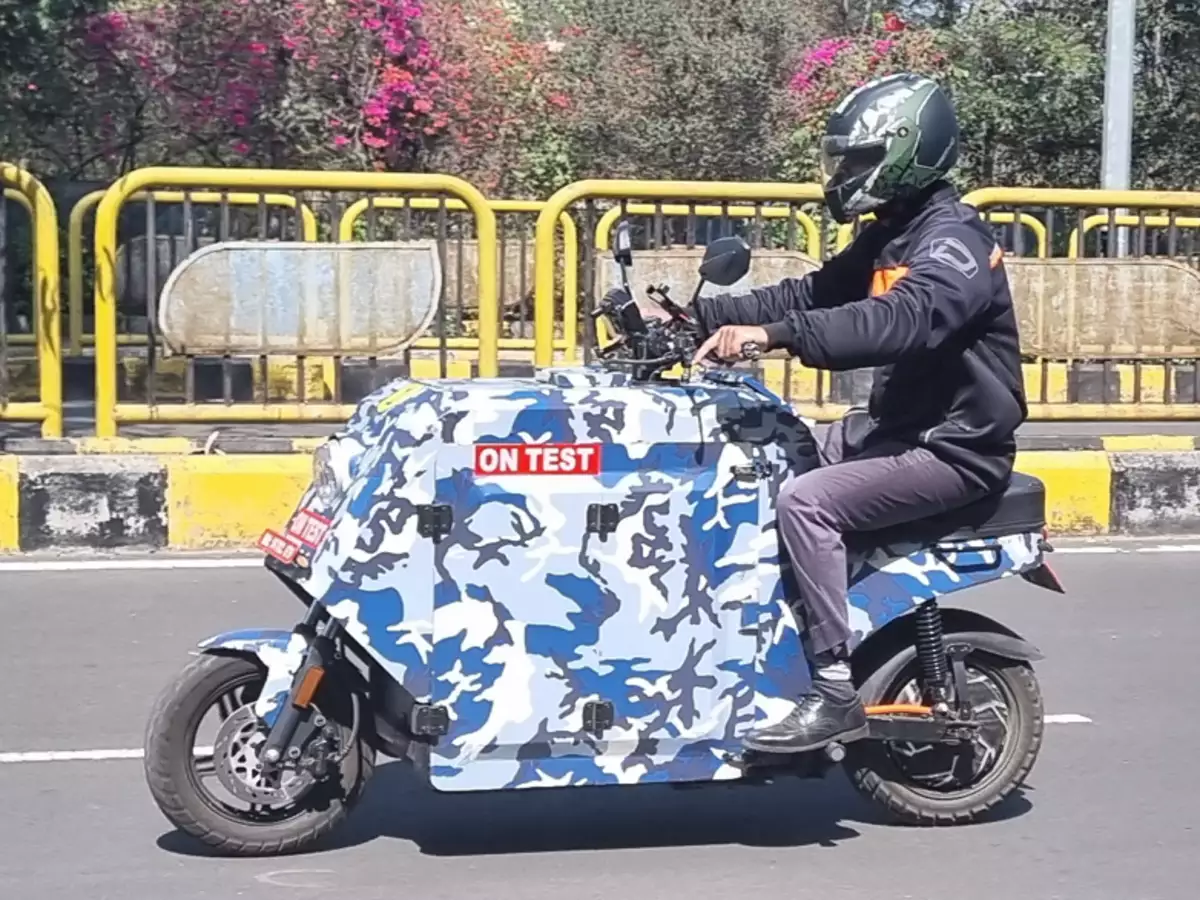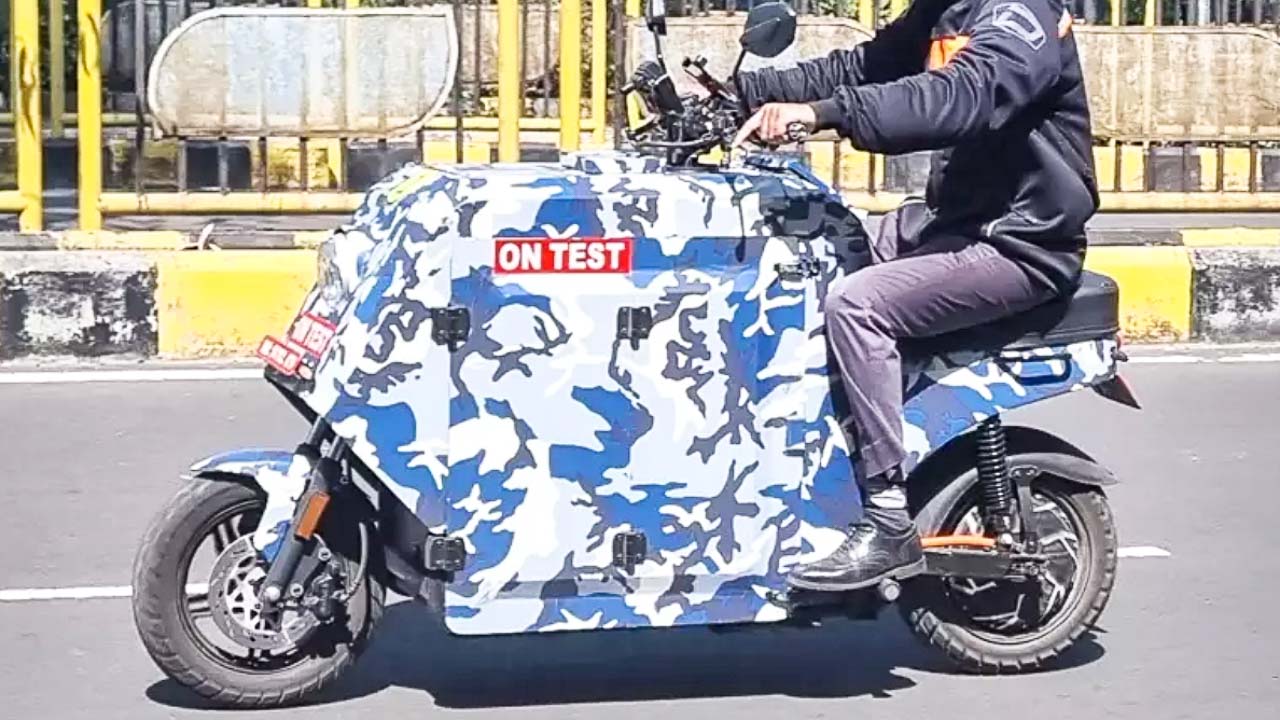
Table of Content
▼MUMBAI: On my recent trip to Pune, I rode a two-wheeler, which is special for many reasons. For starters, its form factor is unlike any other two-wheeler ever seen in India. In fact, its manufacturer, Qargos, calls it the world's first cargo scooter. The India-designed and manufactured electric cargo two wheeler made its debut in Dallas, US, on Sunday, at a conference organized by software technology major Dassault Systems.
Although it is a two-wheeled vehicle, the cargo vehicle is not very easy for beginners to handle, as I found out. The main reason is the cargo compartment built into the chassis between the pilot and the handle. However, a few careful loops were enough to get proper control of the 145kg EV and reach the top speed of 80kph, while also checking the three software-controlled power modes. The electric vehicle has the capacity to carry 120 kg in its 225-litre cargo compartment.
With its first product, Qargos wants to reach a large market in India. "On average, one in 25 drivers use a two-wheeler for commercial applications. This takes the market to nearly one million two-wheelers," Alok Das, Director and Co-Founder, Qargos, said

Technical Specifications
The two-wheeler electric bike will be equipped with a 3.4-kilowatt motor and a maximum power of about 6 kilowatts. It is powered by a 6.1 kWh lithium-ion battery, designed by Dassault Systems. Currently, the scooter can only be charged via AC power, and a full charge takes about 5 hours and 15 minutes, from almost zero. Charging time can be reduced to 3 hours if the vehicle is compatible with DC charging. Qargos claims a true range of 150 kilometers.
It's not the first idea
Although the electric freight scooter is its first product, it was not the first project by Qargos. “Like other EV startups, we were working on passenger vehicles. For the first two years, we were completely dedicated to passenger cars. When we came up with this idea, at a crucial moment, we thought, should we continue working on incremental developments or start working on a revolutionary design?,” said Vijay, co-founder of Qargos.
The idea that led to the unconventional product emerged around 2016. Vijay and Alok, both engineers who have also worked in the aviation sector, believe they have found a new and better solution for first- and last-mile delivery than that provided by current two-wheelers. “Ultimately, the problem is the architectural limitations (of existing two-wheelers) that do not allow it to be solved,” Alok said.
Could a square cargo carrier be an innovative idea that logistics service providers are looking for? Qargos says it has already received orders from a major courier company, which has also been testing the vehicle by running it since late November last year. The electric scooter traveled about a thousand kilometers per month. Alok said the “utility value of the vehicle helped double the number of deliveries.
Compared to approximately 35 daily deliveries using a traditional two-wheeler, the electric scooter user appears to deliver up to 70 packages. For grocery delivery providers, the value proposition could be three times more than the carrying capacity,” , Alok said.
The built-in lockable charging compartment, instead of carrying a large bag, where searching for the right package can take time, contributes to user convenience and faster response time.
Qargos wants to take advantage of comfort, dimensions, and response time to compare the scooter to three-wheelers and also to small trucks. “An electric three-wheeler is good for large shipments like a refrigerator and things like that, but it is inefficient for small packages,” says Alok.
Product modifications
The testing and validation process for the carrier is almost over and it will likely receive approval in March or April. Before that, there will be some modifications, especially to improve the aerodynamics of the boxy vehicle. Qargos carried out resistance force calculation tests, with the assistance of Dassault Systems, to verify potential improvement possibilities. “We did this exercise for headwinds, crosswinds, and their impact respectively,” Alok said.
The goal of the tests is to find out how wind resistance impacts the scooter. Appropriate improvements will be made to the car, such as adding some vents to the front of the body.
Price and production
With its unique form factor and product offerings, the Qargos EV is expected to be priced at around INR 2 lakh. With feedback from some potential customers, the startup plans to launch around 250 vehicles by the end of this year and around 12,000 units next year, from its facility in Pune.
So far, about USD 1 million has been invested in the project. Work is currently underway to produce a two-seat version of the electric scooter, with a smaller charging compartment.
Qargos partnered with some major tier-one vendors and also with Ather (for the charging protocol) to build prototypes. More funds will be needed to implement the go-to-market strategy and accelerate operations.
Also Read: Mahindra Last Mile Mobility sells 40,000 E3Ws in 8 months of FY24
Neha Mehlawat
Neha Mehlawat is an automotive journalist and industry analyst with 10+ years of experience covering cars, bikes, and mobility trends. She tracks the latest launches, technology upgrades, and policy changes in the auto sector, delivering sharp insights that help readers stay ahead in the fast-evolving world of automobiles.
_1771494670.webp)
_1771490848.webp)
_1771485173.webp)


